

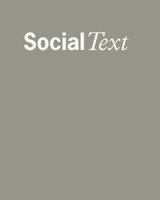
This special issue challenges postcolonial theorists to engage with urban studies and challenges urban analysts to turn their focus to the postcolonial societies where these cities have developed. Gathering well-known scholars in postcolonial theory and urban studies, the collection opens an interdisciplinary exchange through a series of case studies focused on cities in Africa and Asia. One essay argues that the world’s urban spaces are key to the continuance of inequity under capitalist globalization (exemplified by rapidly expanding urban slums), as well as to any possible resistance to that inequity. Another article considers the history and politics of Harlem from the perspective of a well-known academic, activist, and postcolonial theorist whose work here is interwoven with the photographic art of Alice Attie. A third reflects on the politics of representation of Hindu and Muslim populations in Mumbai, evaluating popular media including film and the cosmopolitan fiction of Salman Rushdie.
Contributors. Alice Attie, Mike Davis, Ashley Dawson, Brent Hayes Edwards, Brian Larkin, Rossana Reguillo, Gayatri Chakravorty Spivak, Rashmi Varma, Victor Vich
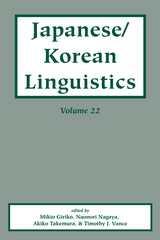

While jazz as an art form has moved from an essentially live club experience to a controlled mass market enterprise, jazz as a cultural form is becoming more recognized and more defined. Reminiscent of yesterday’s more personal jazz encounter, Jazz as a Cultural Archive is an intellectual and controversial jam session. This issue views the evolution of jazz culture through the eyes of the artists themselves. Conversations with saxophonist/composer Benny Golson, singer Mary Stallings, pianists John Hicks and Frank Strazzeri, and trumpeter Art Farmer, among others, highlight this collection of commentary on the changing jazz scene. Also included are an essay by one of the foremost chroniclers of the jazz world, novelist and critic Albert Murray; a look at jazz and the politics of race by trombonist/composer Tom McIntosh; and a stunning collection of photographs by renowned jazz photographer Michael Oletta.
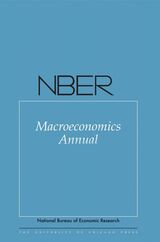
The NBER Macroeconomics Annual provides a forum for important debates in contemporary macroeconomics and major developments in the theory of macroeconomic analysis and policy that include leading economists from a variety of fields. The papers and accompanying discussions in NBER Macroeconomics Annual 2007 address exchange-rate models; implications of credit market frictions; cyclical budgetary policy and economic growth; the impacts of shocks to government spending on consumption, real wages, and employment; dynamic macroeconomic models; and the role of cyclical entry of new firms and products on the nature of business-cycle fluctuations and on the effects of monetary policy.
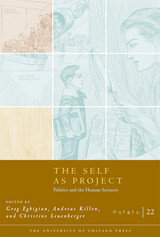
Osiris annually examines a particular topic in the history of science, bringing together experts in the field to consider multiple aspects of the time period, episode, or theme. Volume 22 explores the ways that twentieth-century political institutions and the human sciences in the western world attempted to understand and shape the attitudes and behaviors of individuals.

Rey Chow is Anne Firor Scott Professor of Literature at Duke University. She is the author of The Age of the World Target and Modern Chinese Literary and Cultural Studies in the Age of Theory, both published by Duke University Press.
James A. Steintrager is Professor and Chair of English at the University of California, Irvine.
Contributors: Caroline Bassett, Eugenie Brinkema, Iain Chambers, Michel Chion, Rey Chow, Mladen Dolar, Veit Erlmann, Evan Johnson, Christopher Lee, Mara Mills, John Mowitt, Dominic Pettman, Tara Rodgers, Nicholas Seaver, James A. Steintrager, Jonathan Sterne,

This special issue of Poetics Today explores the development of a South African literary identity in the face of its staggering cultural, historical, and linguistic diversity. The collection uses the idea of the "global imaginary" to explore the ways the outside world has constructed ideas about South African literature as well as the way South Africans themselves have fashioned their literary selfhood. Articles address the legacy of colonialism and apartheid and wrestle with the fact that in spite of the fact that there are eleven official languages in South Africa and that many of the cultures have historically relied on an oral tradition, the dominant works continue to be those that are written down, in English. As de Kock writes in his introduction, the collection "raises a multiplicity of questions about the colonization of culture." There has been a "trope of binary pairing," he writes, between white and black, civilized and backward, home and exile, colonizer and colonized, which obscures the richness and complexity of the South African literary tradition. This collection promises to at least begin to correct that oversimplification.
Contributors: Louise Bethlehem, Jonathan Crewe, Dirk Klopper, Leon de Kock, Loren Kruger, Sonja Laden, Simon Lewis, Peter Merrington, Patricia Watson Shariff, Pippa Skotnes
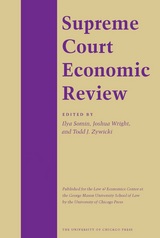

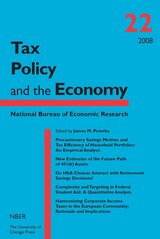


and the Global University, Volume 22
READERS
Browse our collection.
PUBLISHERS
See BiblioVault's publisher services.
STUDENT SERVICES
Files for college accessibility offices.
UChicago Accessibility Resources
home | accessibility | search | about | contact us
BiblioVault ® 2001 - 2024
The University of Chicago Press









